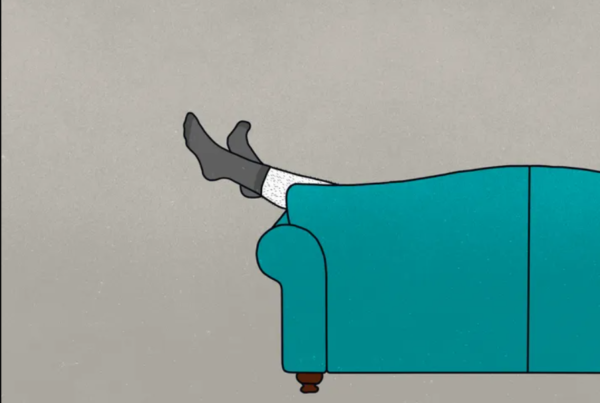News article from the Daily Mail Online on 01/06/21.
Clarification from Dr Scott Murray – Tom Williams actually had a coronary artery calcium score test and a computed tomography coronary angiography (CTCA) because he was under age of 45.
Doctors have long relied on a basic cholesterol test, but now some say there’s a more accurate alternative…
As an ultra-fit marathon runner, Tom Williams expected to sail through a routine NHS health MOT when he hit his 40s. But he was alarmed to discover that, aged 42, his cholesterol levels were high, at 8.5 — with his level of ‘bad’ LDL cholesterol at 6.2. His GP advised that he start on statins immediately to reduce his risk of heart disease. ‘I was shocked,’ says Tom, now 46, who is the chief operating officer of Parkrun, which organises free running events.
‘I was fit and active so wasn’t expecting any health issues. ‘I believe in trying to prevent illness through a healthy lifestyle. So when my GP suggested taking statins to protect against heart disease, it wasn’t what I wanted to hear.’
A blood test for levels of cholesterol or fat — good and bad — forms part of a health MOT; total levels above 5 mmol/l (or ‘bad’ LDL cholesterol above 3 mmol/l) often lead to statins being suggested. That’s because cholesterol can be deposited in the arteries, narrowing them and increasing the risk of a heart attack and stroke. But some experts are worried that cholesterol tests are failing to provide an adequate picture of heart health. There is also growing evidence that more detailed tests should be widely introduced to give better individualised data on whether statins are needed, and pick up heart disease before symptoms arise. Tom, who lives in Harrogate, North Yorkshire, with his wife Helen and two children, aged nine and six, knew he had a family history of high cholesterol, although no one in his family had heart disease. He was unsure about starting statins as they need to be taken for life to control cholesterol levels, and can have side effects such as muscle pain. He initially chose to monitor his health but six months later, when he began having heart palpitations, decided to get a second opinion from a specialist. This time he had several NHS tests, including an electrocardiogram (ECG), which checks the heart’s rhythm and electrical activity; an angiogram (an X-ray of the heart); and an MRI scan to look at the structure and X-ray that will reveal if you REALLY need statins
pumping function of the organ. He also had a calcium score test — an X-ray of the arteries — to check for calcium deposits, which can build up in the fatty plaques that harden the blood vessels of the heart
While routine tests can tell you how much cholesterol is circulating in your blood, experts say the calcium test is more useful as these deposits are a marker for heart disease and stroke. A score of zero means no build up; more than 400 suggests major furring of the arteries and a high risk of heart disease, which affects around 7.6 million people in the UK. The ten-minute test, also available privately for about £250, has been around for 20 years. But it’s not routinely used to screen NHS patients for heart disease. It is only offered to those with a moderate risk of heart disease who have been referred to a specialist. However, a growing number of studies show its usefulness in pinpointing patients at low or high risk of heart disease and suggesting who should be prescribed statins. U.S. and German research found people with high calcium scores were nine to 16 times more likely to develop heart disease. A review of studies involving the technique concluded there was ‘solid evidence’ for its use ‘to improve risk prediction when added on top of the traditional risk factors and scores — particularly in borderline or intermediate risk ranges’, as reported in The BMJ.
Tom’s calcium score of zero suggested his risk of heart disease was low. His palpitations were put down to stress or a virus instead. They passed within a few months and haven’t returned.
‘The calcium test was hugely reassuring — I didn’t need to go on statins after all,’ says Tom.
Dr Scott Murray, a consultant preventative cardiologist who treated Tom at the Royal Liverpool University Hospital, believes a calcium score test lets you ‘see’ the arteries.
‘Coronary heart disease is a jigsaw of multiple factors covering age, diet, lifestyle and family history, and to pin everything on one blood test [for cholesterol] is probably wrong,’
says Dr Murray, who now works at the private Venturi Cardiology heart clinic in Warrington, Cheshire.
‘People like Tom appear to be at high risk of heart disease based on their cholesterol test, but the calcium score test shows they are actually at very low risk and don’t need statins. Calcium score tests are a way of looking under the car bonnet to provide a much more personalised approach to a patient’s risk of heart disease.’
Cholesterol is largely made by the body and is essential for vitamin D production and hormone control. But too much can cause fat to build up in the blood, laying down plaque in the arteries and causing them to harden. Anyone over 40 is eligible for cholesterol tests at their GP surgery, where other risk factors such as high blood pressure, diabetes, smoking and lack of exercise are used to work out your risk of dying of heart disease in the next ten years. The National Institute for Health and Care Excellence recommends offering statins to anyone with a more than 10 per cent chance. Statins are highly effective at preventing a second heart attack or stroke, but there’s a debate over how beneficial they are for those who have not had a heart disease diagnosis or heart attack. Some experts argue that taking statins may only offer a small risk improvement for patients such as Tom, whose actual risk of heart disease is otherwise very low.
Read the full story here












